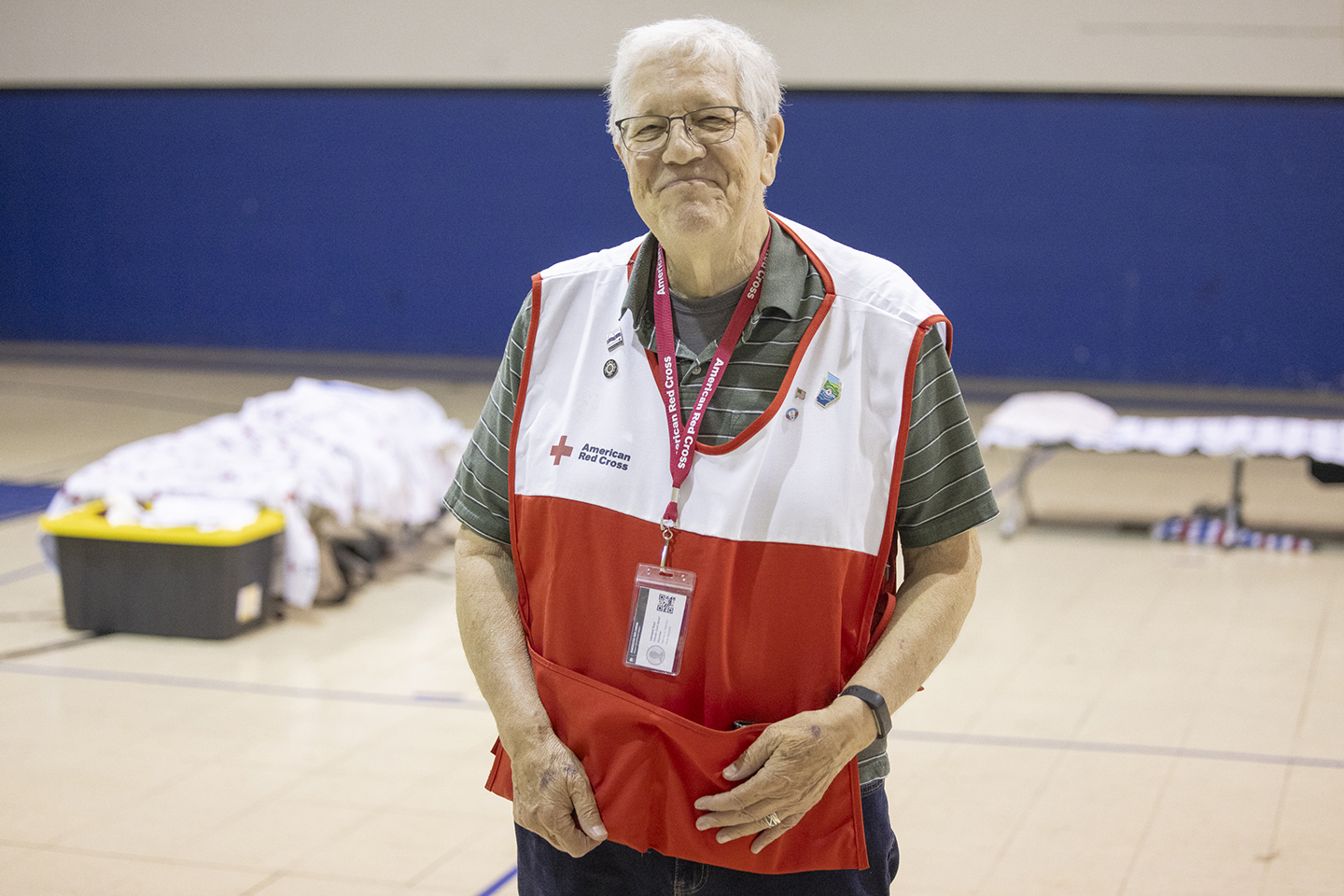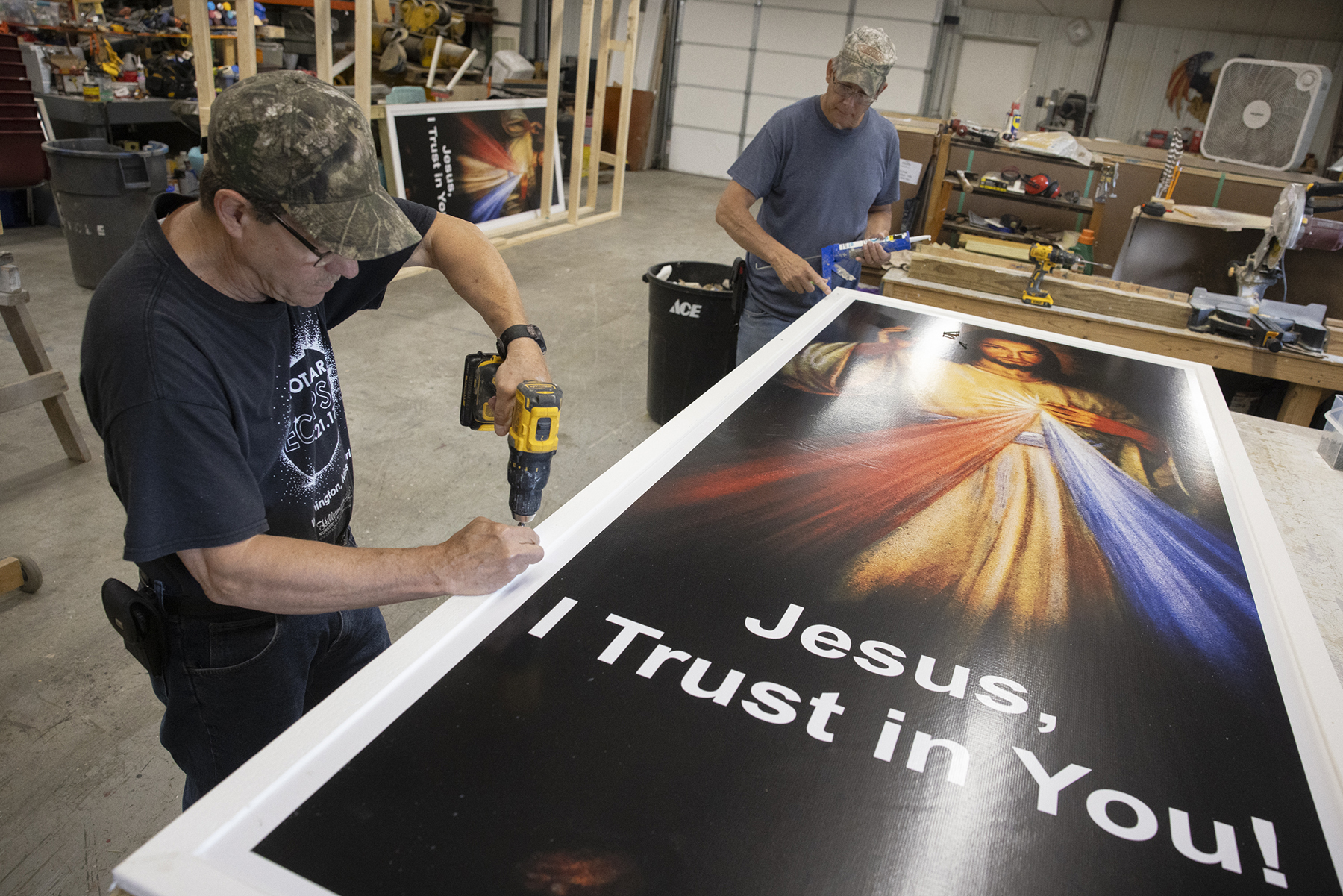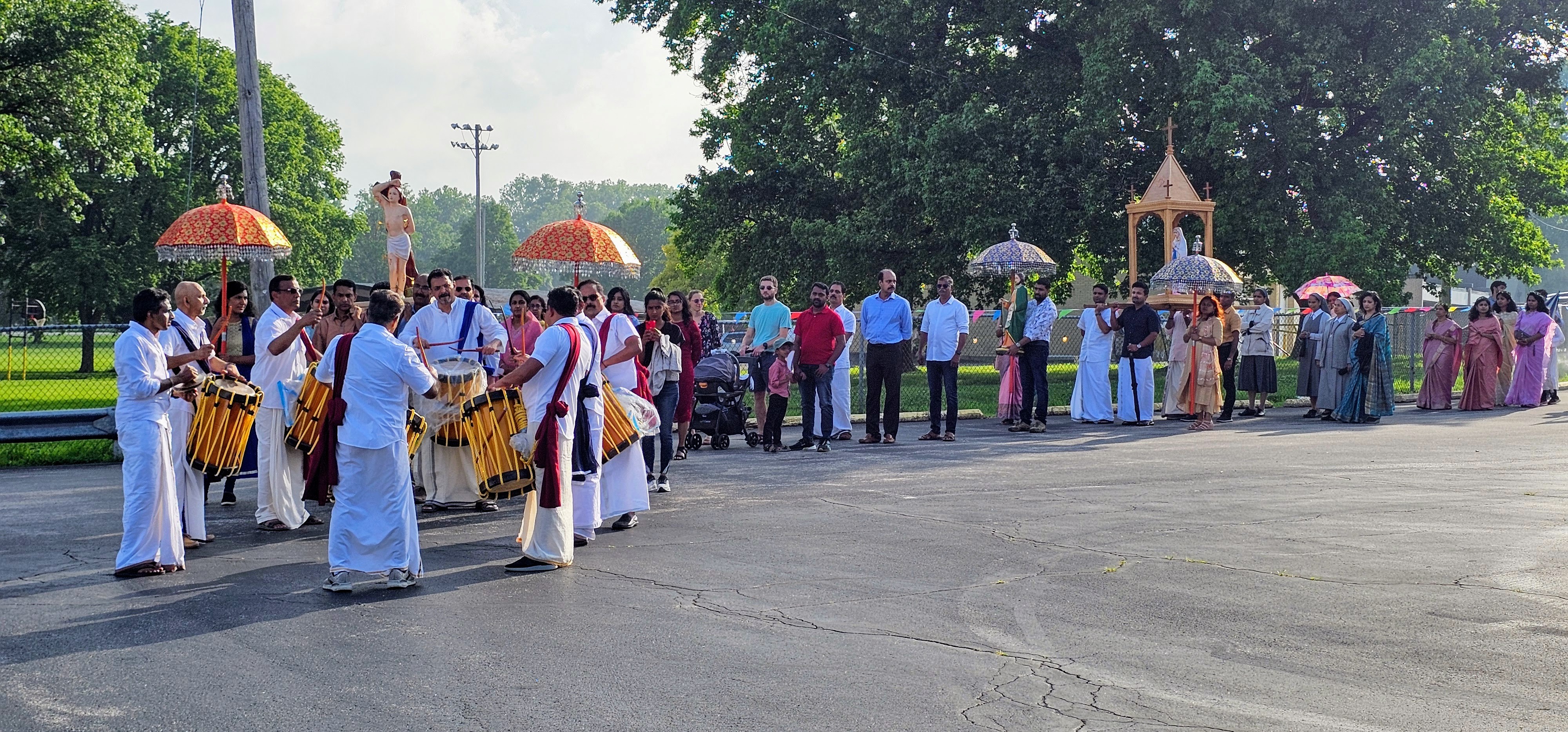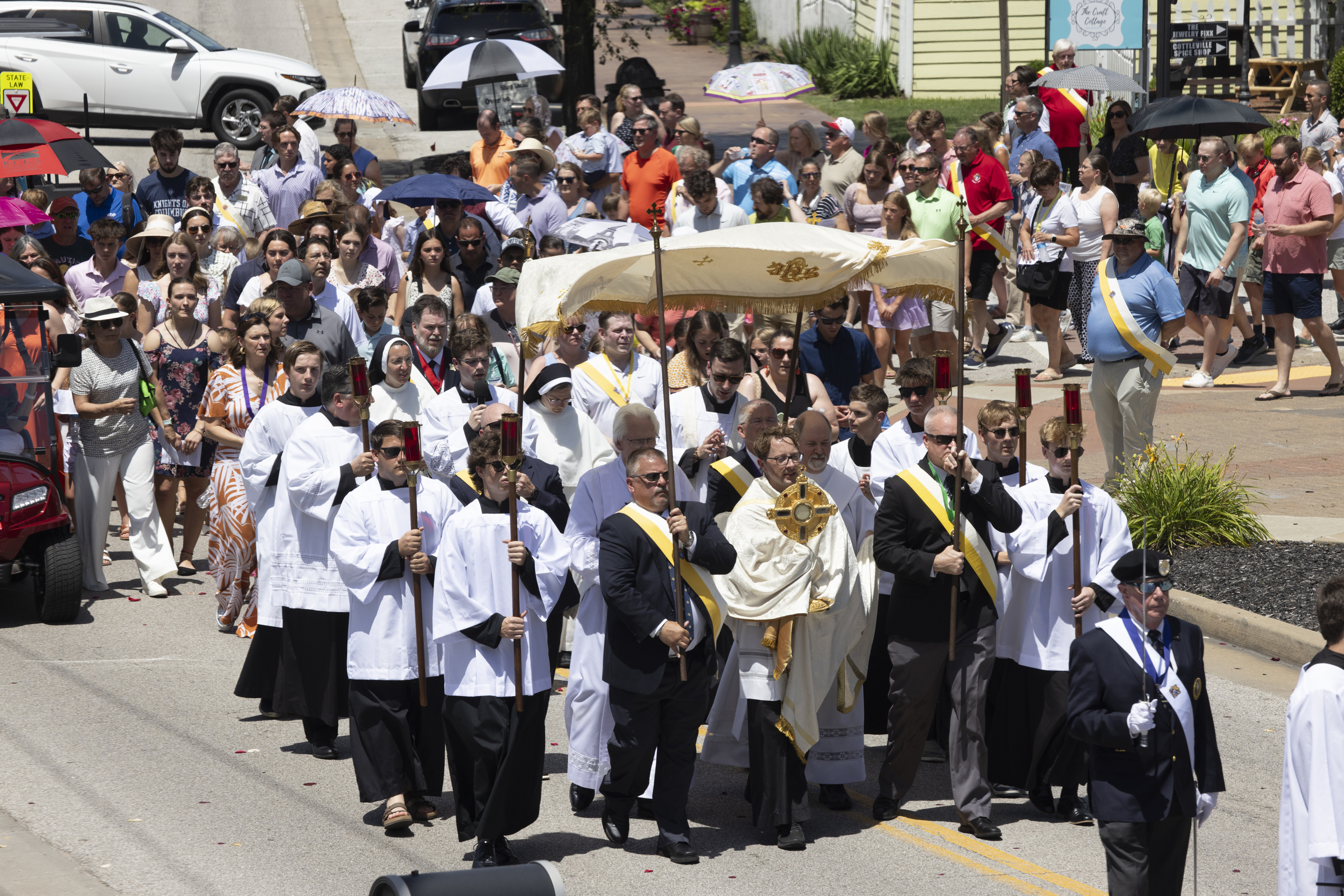Sisters CARE connects Christian women
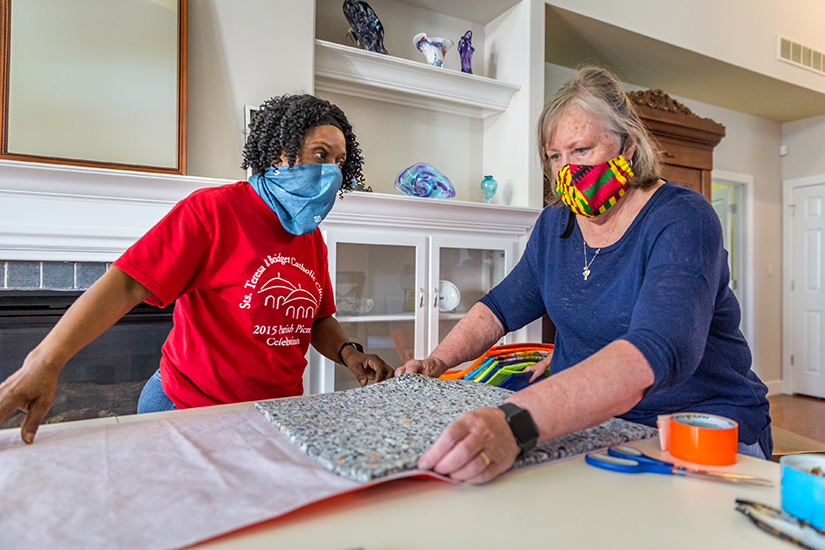
Black and white women build relationships, understanding
In 2014, Becky McKenna was looking to increase her engagement on race relations, which was thrust into the national spotlight with protests and unrest in Ferguson.
“I was just feeling really strongly that I needed to get connected to people who were wanting to have conversations about what’s going on in our community,” said McKenna, a parishioner of St. Francis Xavier (“College” Church) Parish. “I hadn’t had any connections in my past of real substance with Black people. I felt I wasn’t going to figure this out on my own.”
A group of women gathering to discuss race caught McKenna’s attention. Attending the Sisters CARE workshop quickly gave her the sense that it would help her find her way. “This allowed us to explore difficult topics and have honest conversations with each
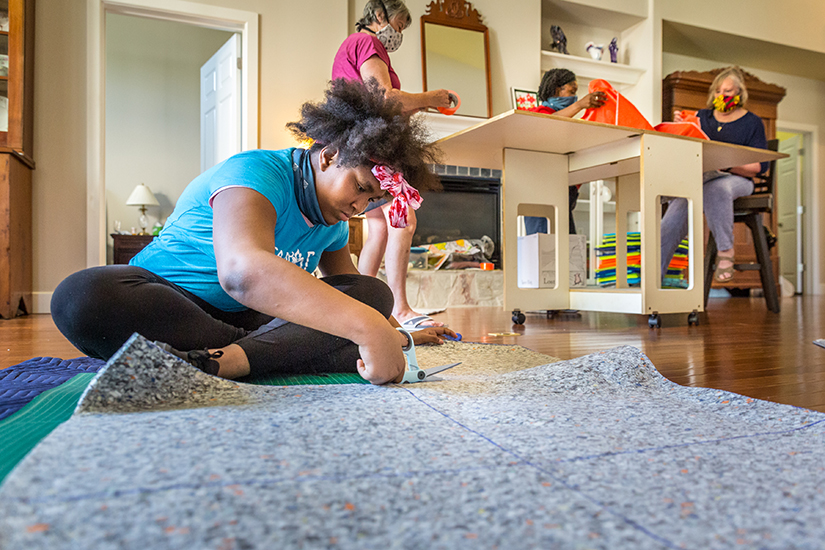
other,” McKenna said. “But on top of that was a fellowship of sharing a faith that believes we are all part of the same community of God.”
Sisters CARE (Christians Advocating for Racial Equality) brings together Christian women of diverse backgrounds to foster understanding and develop relationships, Black and white.
The women pray, have discussions and socialize. “It was an opportunity for us all to begin to build friendships. And that’s what’s been fun,” McKenna said.
The setting is emotionally safe as well as challenging. “It’s been a wonderful opportunity to hang out together and share stories,” McKenna said.
It’s also powerful to listen to the strength and perseverance that generations of people of color have, she said. “And they have such huge hearts and a spirit of embracing others. I have found the Black community is so much more welcoming of white people than white people are of Black people.”
Modeling the love of Jesus
Velma Bailey, a parishioner of Sts. Teresa and Bridget Parish in St. Louis, said she enjoys the diverse group of women who live in different areas, “all working together for the common good for making our region a better place to live and for building relationships with people.”
Bailey, a former teacher and St. Louis alderwoman, founded Saint Louis Torchbearers 2 in 2011. The youth development organization trains young people to serve in leadership roles. It hosts a day camp among other programs such as field trips and tutoring. Women she’s met in Sisters CARE are offering volunteer support. “That’s what we need. More Sisters CARE in the world,” Bailey said.
Bailey said that in Sisters CARE “the love of Jesus Christ and the Bible is really being acted out. In Corinthians, the 13th chapter, it talks about the greatest thing is love. And that’s what I see from the ladies,” Bailey said.
Sharing perspectives
Karen Rothery, a parishioner of Sacred Heart in Valley Park, said she enjoys Sisters CARE because it enables her to get to know women of color and women of different backgrounds that she normally wouldn’t meet. “We get together to talk without angst or judgment, just sitting together and listening,” Rothery said. “I enjoy it when people share different perspectives.”
She became aware of Sisters CARE through Faith & for the Sake of All, an advocacy forum committed to racial equity in St. Louis based on a Washington University study on the health and well-being of African Americans in St. Louis and why it matters to everyone. Rothery gave a presentation to Sisters CARE on Faith & for the Sake of All and the study. “I felt inadequate that I was trying to share with them things that I had just learned about, things that they knew,” Rothery said.
Rothery found the Sisters CARE women “very loving.”
Today, she continues as a liaison for Faith & for the Sake of All and is part of her parish peace and justice commission and on the Sacred Heart green team. “I just look for ways to be of service for others,” Rothery said.
Continuing relationships
Kathleen Martin, a member of Emmanuel Episcopal church in Webster Groves who is one of the founders of Sisters CARE, said the idea is to develop continuing relationships “so we’ll understand one another better.”
She told of outings, some planned as a group and others just friends, Black and white, getting together. They want to be out and seen together as a mixed group. “Often you go out to a restaurant and may see diversity but usually it’s all one race sitting at a table,” Martin said.
With the killing of George Floyd by a police officer in Minneapolis this year, more people are looking for a way to interact, Martin said, with several people, particularly younger people, joining with the group recently.
>> About Sisters CARE
Shortly after protests and unrest in Ferguson in 2014, six white women and five Black women got together at Emmanuel Episcopal Church in Webster Groves. They introduced themselves and, in the words of one of the participants, Kathleen Martin, “got our hearts around doing something.”
“After that, the Lord spoke to me and said He did not want something that was a one-time shot, but something to develop relationships, ongoing, just a few hours, not a retreat or a conference,” Martin said.
They began planning just before Thanksgiving and held the first event three weeks later in the midst of holiday preparations. Thirty women showed up, about twice the number they expected and evenly split between Black and white women.
They’ve been meeting just about every other month on a Friday night for a workshop that includes prayer, spiritual reflection and discussion on a topic that’s race related. Sometimes they see a video or reading to discuss.
They intentionally sit with someone of a different race. They’ve been meeting on Zoom due to the coronavirus, and at their last gathering they discussed a video, “Lucky Zip Codes,” with its presenter, Amy Hunter.
The group evolved to incorporate a monthly informal Saturday morning “chick chat” in a public place such as a coffee shop with no agenda. They’ve been in parades and some protest walks.
They’ve served as volunteers. held activities such as a train trip to Washington and gathered to watch the films such as “Hidden Figures,” inviting men and children to attend as well.
There’s no formal membership, but an email list includes 250 women.
They’ve invited Joyce Jones, program director for racial harmony in the archdiocese, to be the speaker at one of their gatherings at the end of July. Marty K Casey, founder of Un-GUN, the Show Me Arts Foundation and the National Association of Black Female Executives in Music and Entertainment, is also scheduled to speak to the group.
For information, email sisterscarestl@gmail.com.
In 2014, Becky McKenna was looking to increase her engagement on race relations, which was thrust into the national spotlight with protests and unrest in Ferguson. “I was just feeling … Sisters CARE connects Christian women
Subscribe to Read All St. Louis Review Stories
All readers receive 5 stories to read free per month. After that, readers will need to be logged in.
If you are currently receive the St. Louis Review at your home or office, please send your name and address (and subscriber id if you know it) to subscriptions@stlouisreview.com to get your login information.
If you are not currently a subscriber to the St. Louis Review, please contact subscriptions@stlouisreview.com for information on how to subscribe.



